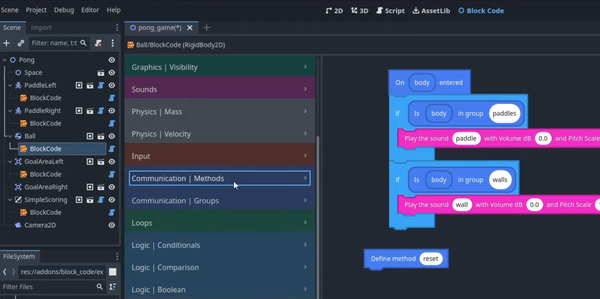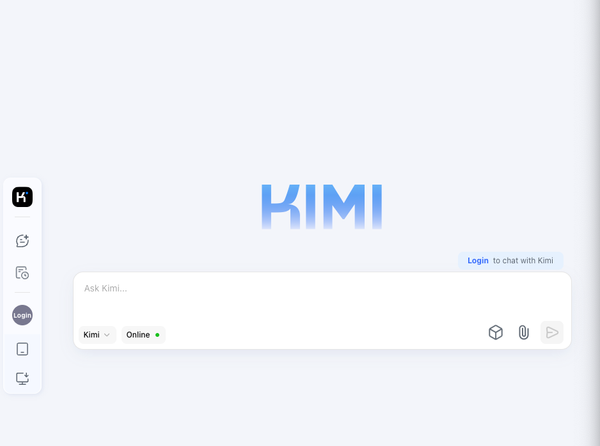18 Open-source Flat-file Wiki Engines
Table of Content
A flat-file system is a solution that save records, and data in a plain files, instead of depending on an external database to store its content.
Unlike database dependent systems, which requires you to setup, configure, prepare, and manage your database before installing your system, the flat-file solution has everything in one setup.
As there is no shortage of open-source database-powered wiki systems, it is time to shed some light on flat-file wiki engines which follow the same principle.

There are several flat-file CMS which we covered in this list: 18 Open-source Flat-file CMS. So, this article is dedicated to flat-file Wiki engines.

1-DokuWiki
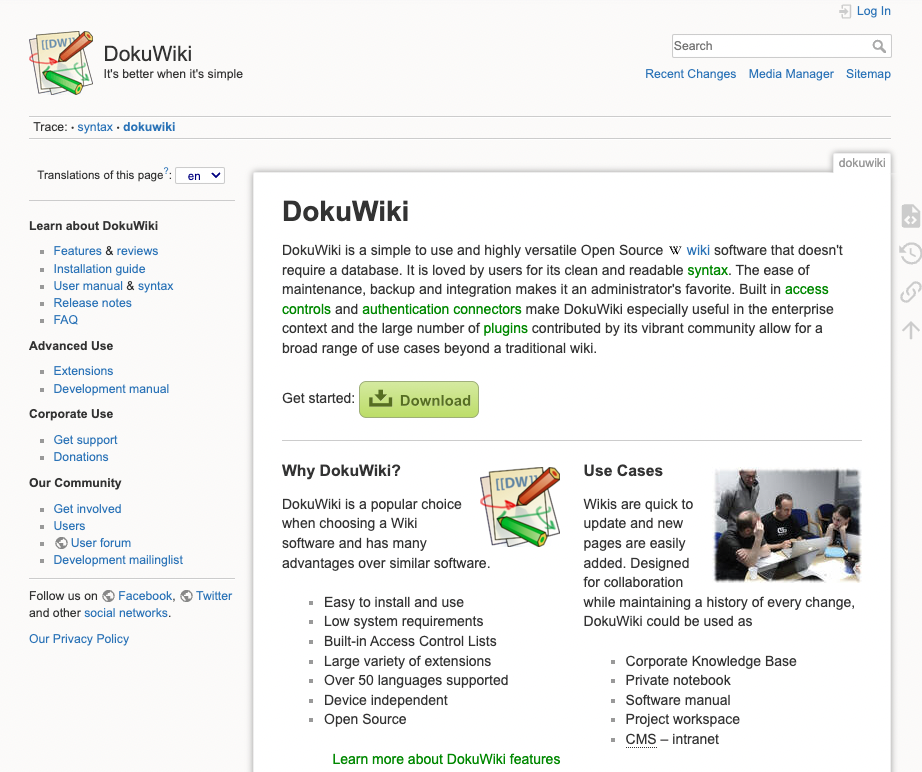
DokuWiki is a free, open-source full-featured wiki engine that requires no database without missing any component of Database-powered wikis.
DokuWiki comes with a strong user management system, a built-in access control list (ACL), a clear wiki syntax/ markup, full-text search option, multilingual support and a rich echo-system full of extensions, plugins, templates and hacks.
For years, I used DokuWiki for work and for individual purposes.
DokuWiki is packed by a strong community of professional and everyday users, who keep feeding its free store with cool hacks, components, and themes.
DokuWiki is released under the GNU General Public License v2.0.
2- PmWiki
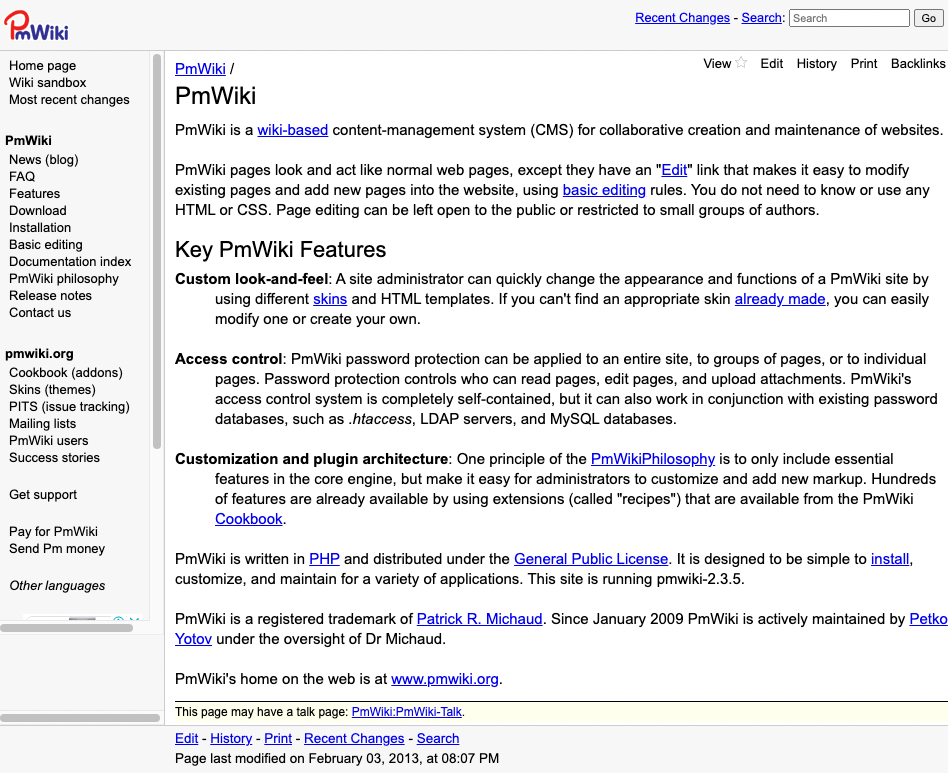
PmWiki is a CMS and wiki engine with clean look and a dozen of customization option. As DokuWiki, PmWiki is written in PHP language, and uses flat-file to store its content, configuration, and data.
PmWiki comes with advanced page editing options as revisions, page history, a rich wiki syntax, built-in search, RSS web feed, categories/ tags options, a built-in email notifications, LaTeX support, and a spamming protection features.
Developers can easily design custom skins (themes) for PmWiki, however, it requires some deep dive into its design language.
Multiple wiki setup with one installation is another unique feature for PmWiki.
PmWiki is free software released under the GNU GPL License.
3- TiddlyWiki
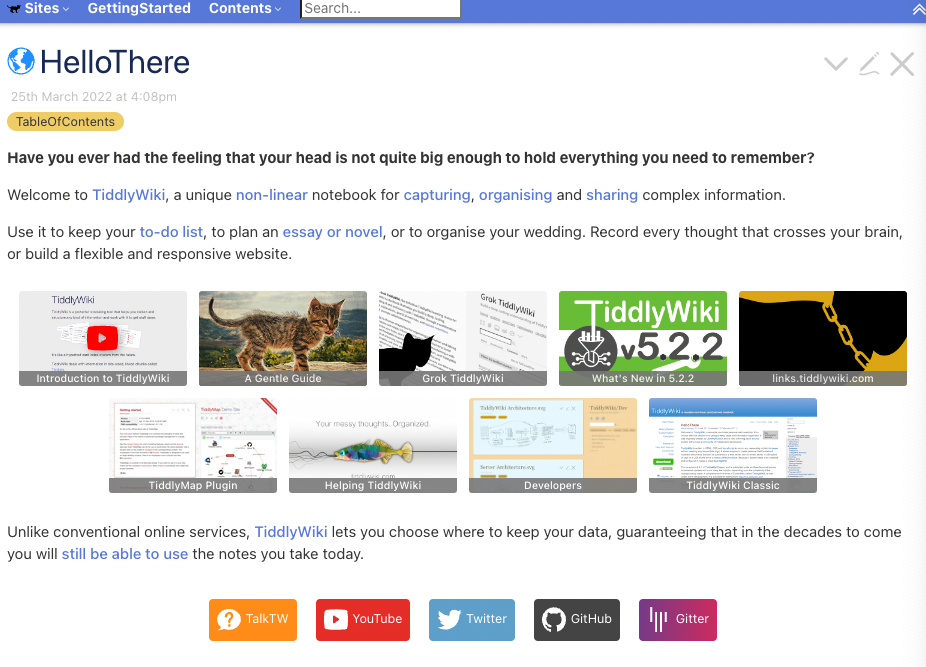
TiddlyWiki is a one-file flat-file wiki system that can work without the need to setup or a database. However, it may require certain tools to edit the file.
As a TiddlyWiki user for years, I highly recommend it for personal usage, as it can work as a personal journal, task management system, note-taking app or a project management system.
TiddlyWiki comes with a straightforward interface, with dozens of customizable options, built-in search feature, tags support, dozens of themes and plugins. It also features several language packages that can modify TiddlyWiki interface to any supported language.
4- WikiDocs
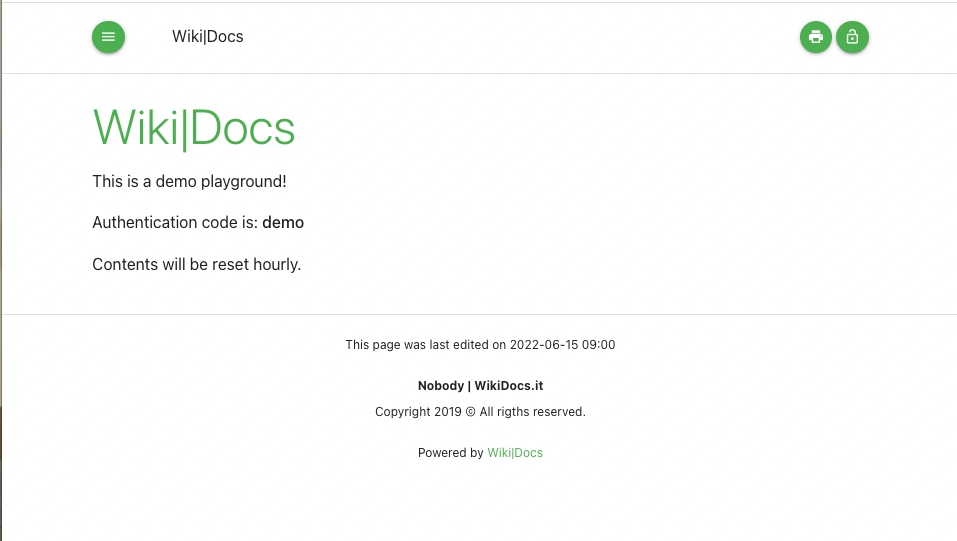
WikiDocs is a Markdown-based flat-file Wiki engine, that comes with WYSIWYG editor, built-in sitemap generator, image uploading, syntax highlighting, page revisions.
WikiDocs is released under the MIT License.
5- MDwiki
MDwiki is a CMS/Wiki completely built in HTML5/JavaScript and runs 100% on the client. No special software installation or server side processing is required.
Just upload the mdwiki.html shipped with MDwiki into the same directory as your markdown files, and you are good to go!
MDWiki features
Built completely in JavaScript/HTML5 and does not require any local or remote installations
- Uses Markdown as its input markup language
- Build on top of jQuery and Bootstrap3 to work cross-browser, with responsive layout
- Extends Markdown with special Gimmicks that add rich client functions, like syntax highlighting via hightlight.js, GitHub Gists, or Google Maps for geo data
- Themeable through Bootstrap compatibility, supports all themes from bootswatch
6- ittywiki
ittywiki is a free open-source flat-file simple wiki engine that uses Markdown instead of the traditional wiki syntax.
The app is written primary with the PHP language, it features page summaries, tooltips, and simple setup with less configuration.
7- Gollum
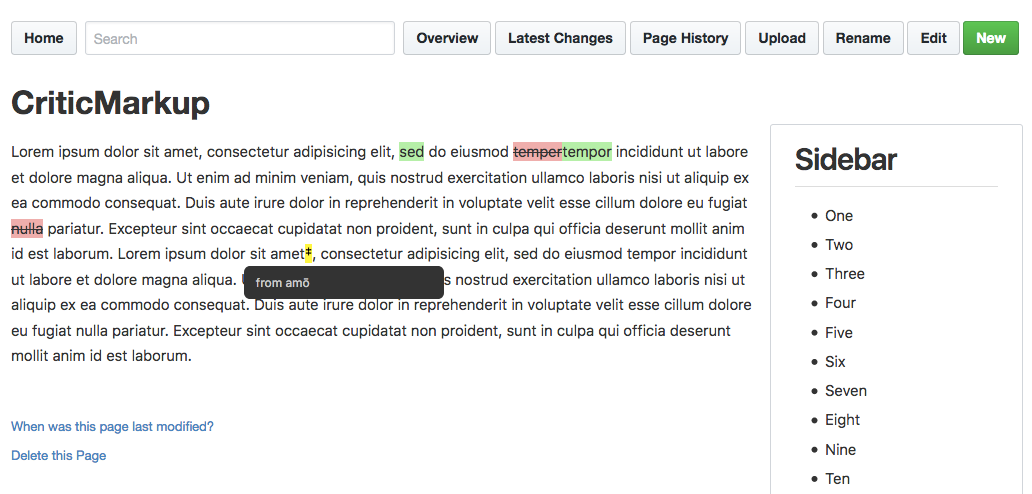
Gollum is an open-source Wiki engine that uses Git as a backend to store, manage, edit and revise pages.
Gollum features a front-end editor, UML diagrams, BibTeX and citation support, MathJax, search functionality, and RSS feeds.
8- Gitit
Gitit is a Wiki system that written using Haskell and Happstack (Haskell-based server) as a web server.
Gitit supports TeX math, categories, syntax highlighting, caching, atom feeds, and several other features. It uses the pandoc convertor as a markup processor.
9- Vimwiki
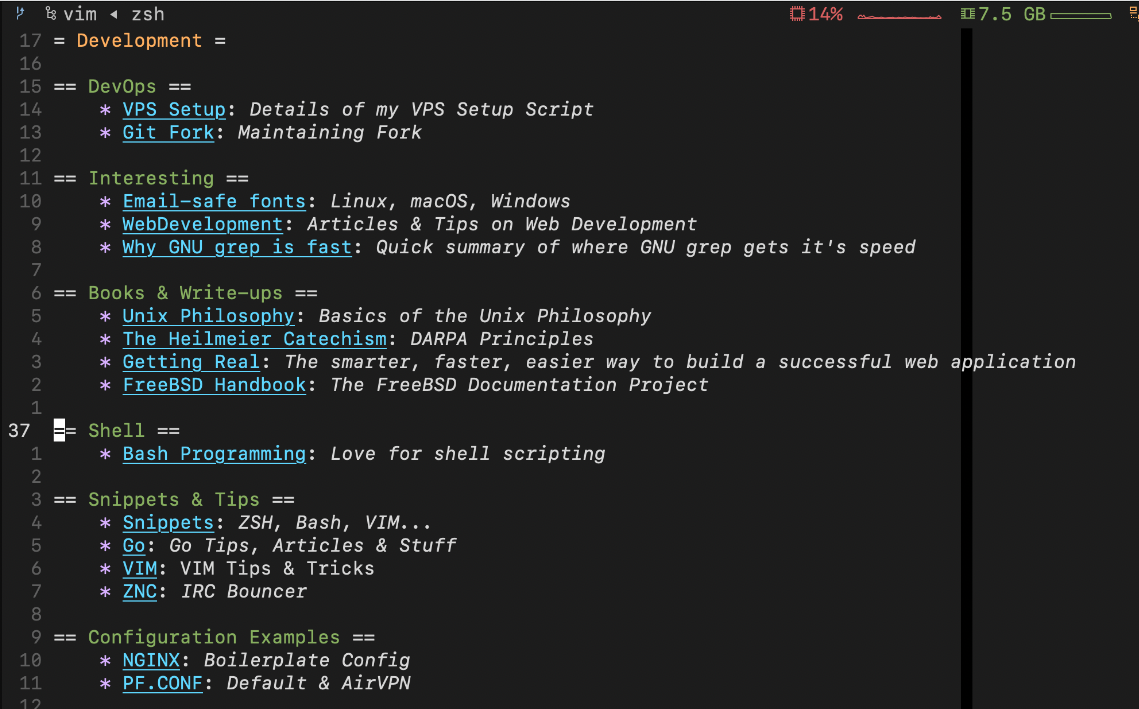
Vimwiki is an amazing wiki engine for Vim users as it is primarily utilize Vim as an editor.
With VimWiki, vim users can organize their notes, ideas, manage their to-do lists, organize the project documentation, then export everything to HTML.
10- Waliki

Waliki is a wiki engine and app written using Python and Django Web framework. It is a pure file-based system that store all data in flat-files. As it is written in Django, it inherits its built-in features as its Advanced ACL system, Django admin, and customizable templates.
11-Jingo

Jingo is a full-featured Git-based wiki engine written in Node.js.
It is easy to setup and comes with almost zero-configuration as it works directly with your wiki directory.
Jingo is an open-source project released under the MIT License.
13- Mycorrhiza
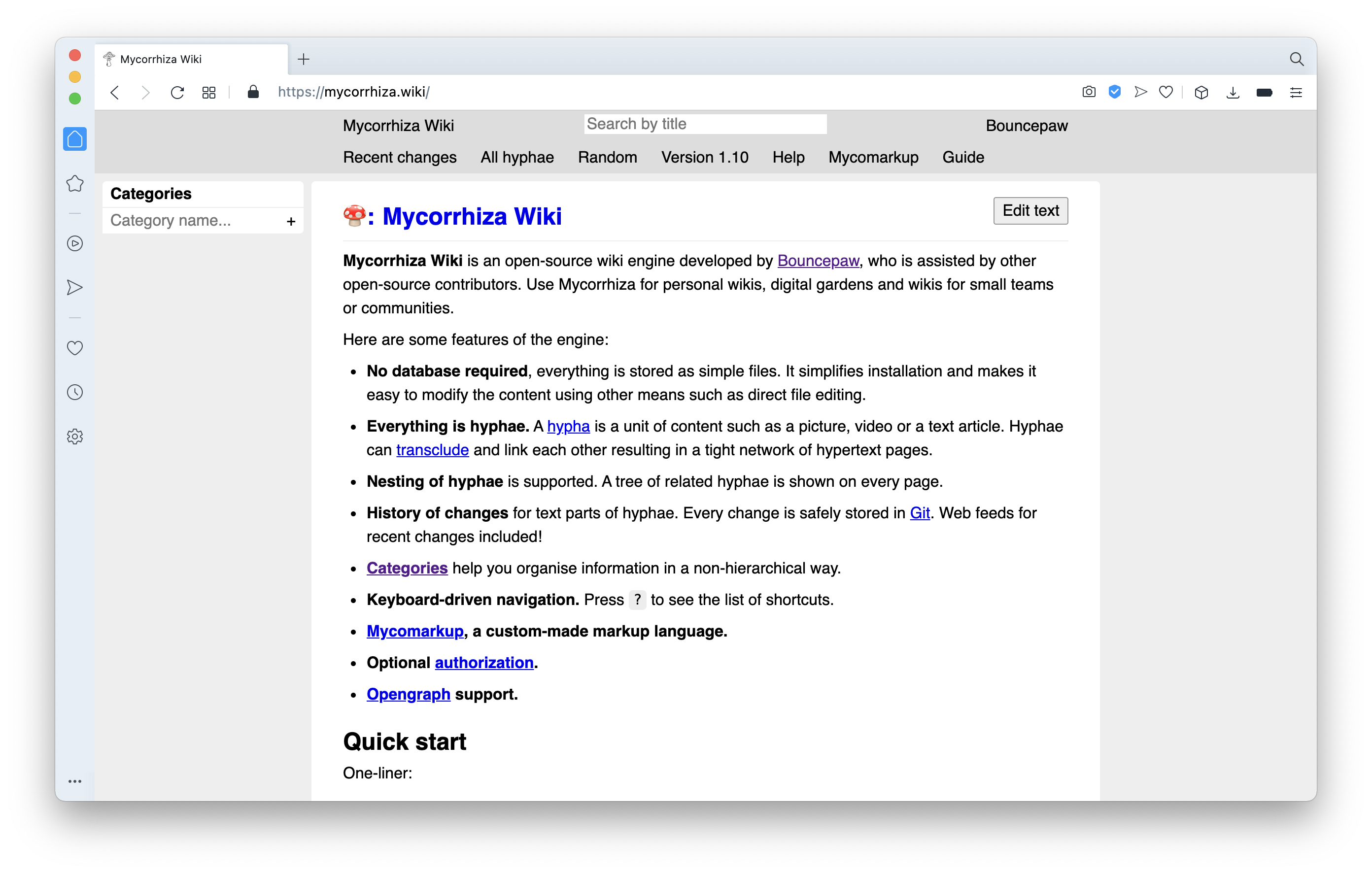
Mycorrhiza is an open-source filesystem and git-based wiki engine written in Go using Mycomarkup as its primary markup language.
It features content revision using GitHub or any Git-based service, categories, authorized content, and uses Open Graph.
Mycorrhiza uses hyphae which is a content unit that can be anything: a picture, a file attachment, a page, a post, an embedded video, or an a nested hyphae of other content.
14- Sausagewiki
The Sausagewiki is yet another file-based wiki system written with the Rust programming language. It is an open-source project that is released under the GNU General Public License v3.
Sausagewiki supports Markdown syntax, and comes with a full-text search function, a responsive design, Progressive enhancement: works with or without JavaScript, and can work with external third-party authentication.
15- Fluence (Git)

Elegant wiki powered by Crystal, with Markdown as native format and a WYSIWYG editor.
It uses file-based storage versioned using Git. Wiki pages are created as files and directories on disk and they can be modified in Fluence or via filesystem directly.
16- Quiki

Quiki is a file-based web engine and server featuring a productive source language, markdown, image generation, categories, templates, and revision tracking.
17- Gone
Gone is an open-source self-hosted simple yet powerful wiki engine written in the Go programming language. It supports Markdown-based content and files, HTML files, and plain text files.
It has a limited setup that requires only Go, and runs with zero configuration.
Gone is released under the MIT License.
18- Amusewiki
The Amusewiki is an open-source wiki engine, designed for ePublishing purposes. With it, you can export a high-quality EPUB, and PDF files with LaTeX quality.
Amusewiki uses Git as a backend for file storage, and comes with a rich book builder tool, and multilingual support.
The system also features a built-in server for mobile ePublishing systems; OPDS server that deliver the texts straight into the reading apps.
Wrapping up
Flat-file based wikis are an ideal solution for users who don't want a complex setup. Begin databaseless does not mean they have fewer feature than database-powered wikis. However, it may not be a good idea to any for a complex wiki project.
If you know of any other similar project that we didn't mention here, let us know.
Read more








